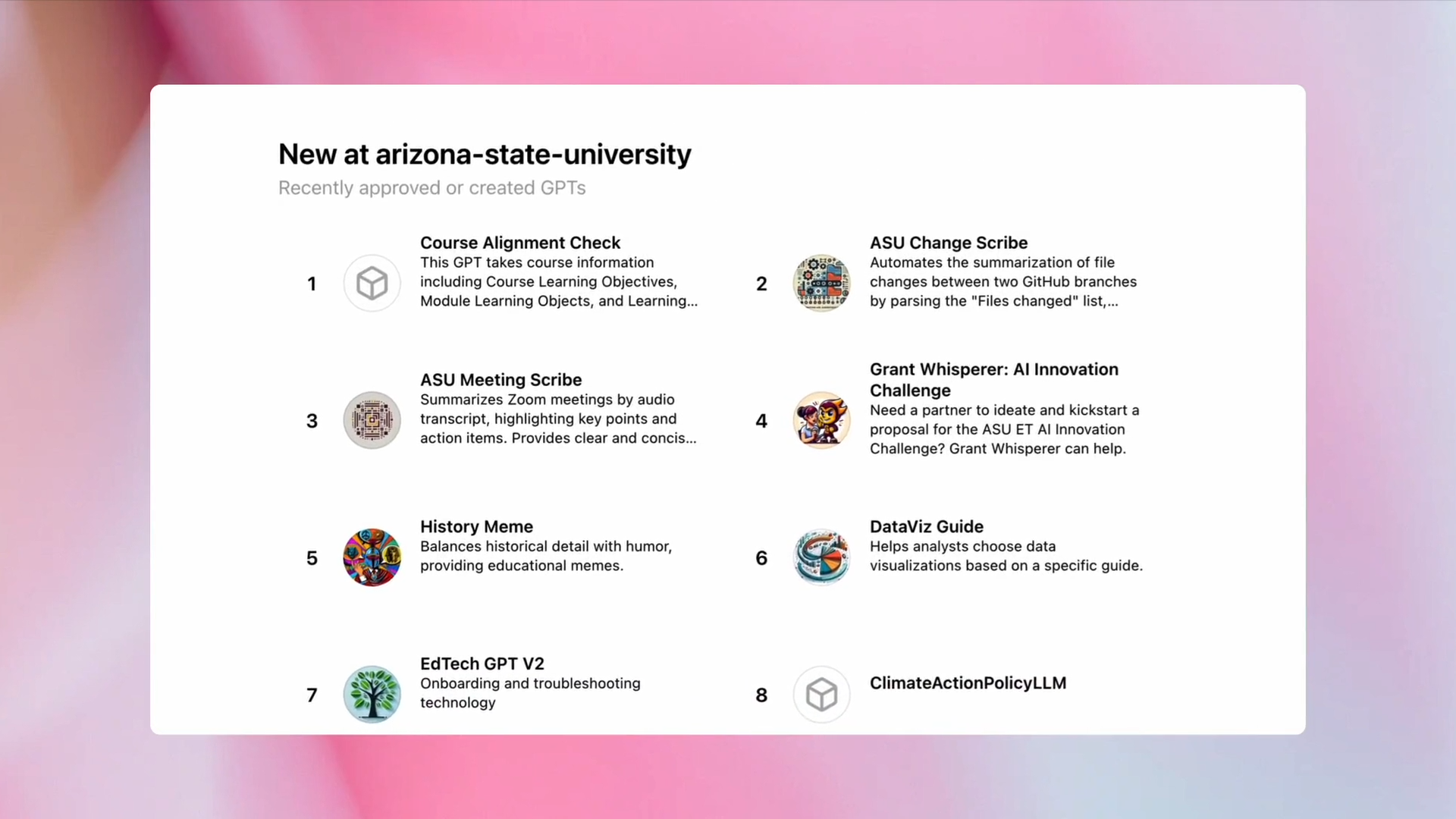Your next professor at this college could be ChatGPT
OpenAI and Arizona State University are making ChatGPT Edu part of life on campus

Arizona State University (ASU) has made ChatGPT its busiest faculty member this year. The AI chatbot helps students write academic papers, simulates patients for healthcare students, and recruits participants for research studies, among hundreds of other roles.
ASU and OpenAI agreed to work together earlier this year, deploying an adapted version of ChatGPT designed to help with teaching, research, and other academic needs called ChatGPT Edu. ChatGPT Edu is now a key part of the campus experience, serving ASU's plans to use AI for more personalized and accessible learning and research experiences.
“No two people learn in exactly the same way, and innovation has proven to be the most powerful asset that we have,” ASU President Michael Crow explained. “Essential to ASU’s success is that we use technology, and now AI, to deliver lifelong learning and to drive human potential.”
ASU created the AI Innovation Challenge when announcing the deal and asked faculty to suggest ways ChatGPT could assist in their work. More than 80% of ASU’s schools and colleges submitted proposals in only a few weeks, leading to a second round that was also open to student researchers. There are now more than 400 proposals under consideration, with over 200 projects employing ChatGPT Edu in some form already begun.
Academic AI
ChatGPT Edu’s highlights include the “AI as a Writing Companion” program. ChatGPT helps students write for academic settings with real-time feedback on their papers. Meanwhile, there’s a virtual patient named “Sam” at the College of Health Solutions, a simulated middle-aged smoker powered by ChatGPT gives students a chance to practice clinical care and interact with a patient. Then there’s “Research Plus Me,” which aids with research participation recruitment and helps make it both more effective and more ethical.
“We are convinced that training students to use AI is essential for their future workforce success,” says Anne Jones, Vice Provost for Undergraduate Education. “People are excited because they now have concrete examples to point to in which AI is improving their outcomes in the classroom.”
ASU’s success is likely to set a template for other universities working with OpenAI and other AI developers. With all due ethical considerations, AI may be a big boon to higher education. Attempts to ban ChatGPT and related tools outright are unlikely to really work, especially when it comes to discerning AI-written text from human compositions. It makes sense for schools to look for ways to embed AI in their campus to better control it rather than drive it underground.
Get daily insight, inspiration and deals in your inbox
Sign up for breaking news, reviews, opinion, top tech deals, and more.
You might also like...

Eric Hal Schwartz is a freelance writer for TechRadar with more than 15 years of experience covering the intersection of the world and technology. For the last five years, he served as head writer for Voicebot.ai and was on the leading edge of reporting on generative AI and large language models. He's since become an expert on the products of generative AI models, such as OpenAI’s ChatGPT, Anthropic’s Claude, Google Gemini, and every other synthetic media tool. His experience runs the gamut of media, including print, digital, broadcast, and live events. Now, he's continuing to tell the stories people want and need to hear about the rapidly evolving AI space and its impact on their lives. Eric is based in New York City.
